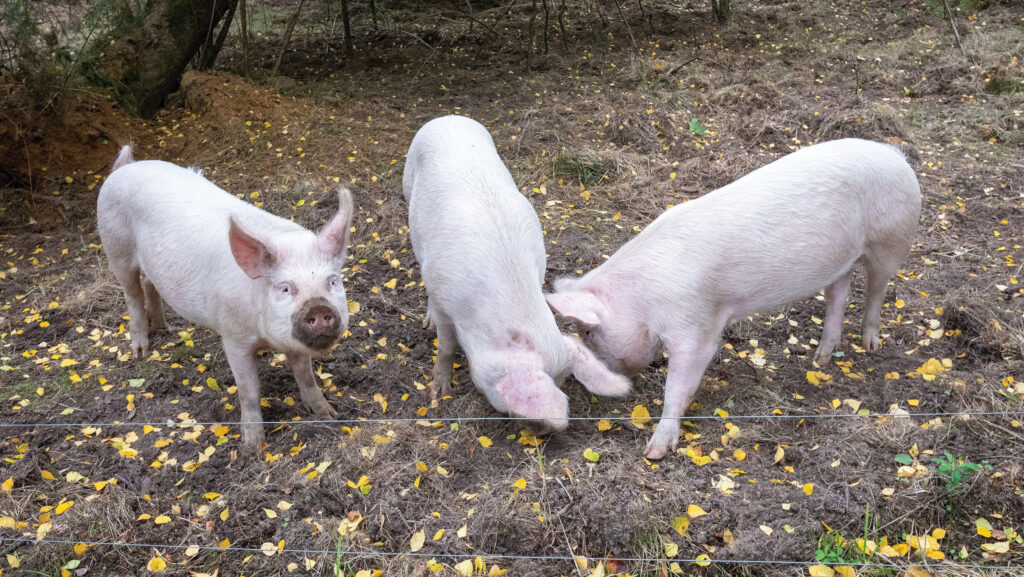Business Clinic: Should smallholder become VAT registered?
 © Gillian Pullinger/Alamy Stock Photo
© Gillian Pullinger/Alamy Stock Photo Whether it’s a legal, tax, insurance, management or land issue, Farmers Weekly’s Business Clinic experts can help.
Here Joe Spencer, partner, MHA, advises on a smallholder’s VAT questions
See also: Business Clinic – tax advice for farmworker cottage construction
Q: I recently bought a small holding (just over 7ha) of mixed grazing land and a small woodland, which I hope to raise pigs in.
My outgoings are likely to be more than my income for the next two to three years as I continue to fix fences and outbuildings that have been neglected for many decades.
I also plan to construct a new barn that is urgently needed.
Are new agricultural buildings charged at a lower VAT rate and/or should I become VAT registered, bearing in mind that my income is less than my spend at the moment?
A: The question raised indicates that the intention is to trade on the small holding – this is a key aspect of consideration for VAT registration.
VAT registration is required in certain circumstances, but generally speaking there is either compulsory or voluntary registration.
Registration is compulsory where the business turnover will exceed £90,000 in the next 30 days alone, or in the next 12 months on a rolling basis.
In the scenario presented, there is acknowledgement that business income is likely to be low for the first two or three years and as such, we assume that voluntary registration should be considered here.
Voluntary registration
A business can voluntarily register for VAT and, providing that they are making or intending to make taxable supplies, they can generally recover the VAT they incur on their business expenditure.
For many businesses in the sector, the supplies made, be that the sale of crop or livestock, are zero rated supplies for VAT.
This means they are taxable supplies but 0% VAT is charged on the supply. This usually results in a repayment position.
Referring directly to the question, I am assuming the grazing land will be used for the purposes of the trade and not “let out” to a third party.
Consideration must be given in these circumstances as this may change the status of the supply.
Working on the assumption that you will be trading, then I would recommend a VAT registration on the basis you will be able to recover VAT incurred on your business costs.
Monthly return to help cash flow
I recommend that you consider registering for monthly VAT returns which, although it will slightly increase the administration burden of having a monthly reporting requirement of submitting a VAT return to HMRC, this results in repayments flowing back to the business sooner which can be vital when starting up a business and managing cash flow.
The materials you will buy, as well as potentially any contracted in labour, to help repair fencing and outbuildings will likely carry VAT which you can recover, providing the fences and outbuildings are used for the purposes of the trade.
New agricultural buildings do not have a lower rate of VAT attached to them, one would expect to incur 20% standard rated VAT on the costs associated.
Again, provided the intended use of the building is for the purposes of the trade, then VAT can be recovered on the build costs.
There are some more complex partial exemption rules in VAT legislation which can come into play, particularly if you are renting assets out.
This is perhaps not relevant for this scenario but the partial exemption rules can be difficult to follow and apply, in which case I would strongly recommend seeking advice to ensure your submissions are accurate.
In summary, a voluntary VAT registration seems sensible, though I would recommend you seek advice to confirm this position, and that the proposed registration for VAT aligns with the intentions of the business and its assets.
Do you have a question for the panel?
Outline your legal, tax, finance, insurance or farm management question in no more than 350 words and Farmers Weekly will put it to a member of the panel. Please give as much information as possible.
Email your question to FW-Businessclinic@markallengroup.com using the subject line “Business Clinic”.
